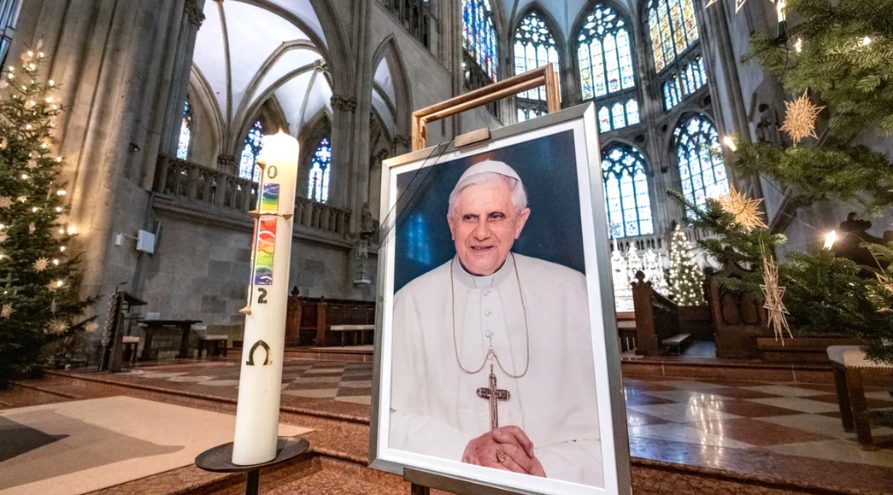(ZENIT News / Bonn, 11.17.2025).- The quiet, leafy district of Bad Godesberg in Bonn, Germany, has unexpectedly become the setting for a fierce debate over memory, responsibility, and the public face of the Catholic Church. A proposal to name a local street after the late Pope Benedict XVI—Joseph Ratzinger—has drawn sharp criticism from associations representing survivors of clerical sexual abuse, transforming what might once have been a routine gesture of civic homage into a referendum on the Church’s troubled past.
The plan, put forward by the Bonn Citizens’ Association, seeks to honor Ratzinger’s early academic years in the former West German capital. Long before he became one of the most influential theologians of the 20th century—and later the first pope in nearly six centuries to resign—Ratzinger taught theology at the University of Bonn. He lived in Bad Godesberg during that period, sharing a modest home with his sister in a neighborhood now marked by a commemorative plaque.
Yet the proposal has ignited objections from survivor advocacy groups who argue that public spaces should not memorialize figures whose legacies, they say, are inseparable from the systemic mishandling of abuse cases within the Catholic Church. For these groups, the debate is not merely about a name on a street sign but about whose stories are privileged and whose suffering is sidelined. No one has been able to prove that Benedict XVI concealed or mishandled cases of abuse.
Advocates point in particular to controversies surrounding Ratzinger’s tenure in Munich in the early 1980s, when he approved the reassignment of a priest previously accused of serial sexual abuse. Benedict XVI consistently rejected the accusation that he knowingly enabled a perpetrator’s return to ministry.
For survivor organizations, the symbolism of naming a street after Ratzinger feels not only premature but painful. Their leaders argue that society too often honors the reputations of powerful clerics while the experiences of those harmed remain unacknowledged in the civic landscape. Some have suggested turning the conversation in an entirely different direction: naming streets after survivors themselves, as a way of affirming dignity, resilience, and justice.
The city administration now finds itself navigating an emotionally charged process. Because renaming a street carries practical consequences—changes of address, administrative adjustments, and potential financial burdens for residents—such decisions are typically made slowly and with broad consultation. Officials have begun reviewing the proposal and are expected to weigh both the symbolic and logistical implications.
Complicating the matter is Germany’s broader internal reckoning with clerical abuse and its aftermath. As dioceses continue to publish long-awaited reports and state authorities conduct independent inquiries, public sensitivity to issues of ecclesial accountability has grown significantly. Against this backdrop, even gestures of commemoration once seen as uncontroversial now demand closer examination.
Supporters of the street name emphasize Ratzinger’s intellectual legacy, his ties to Bonn, and his impact on global Catholic thought.
Whether the proposal advances or is set aside, the debate has already served a wider purpose. It has underscored that, more than a decade after Benedict XVI stepped down from the papacy, his legacy continues to provoke reflection far beyond the walls of the Church he once led.
Thank you for reading our content. If you would like to receive ZENIT’s daily e-mail news, you can subscribe for free through this link.

